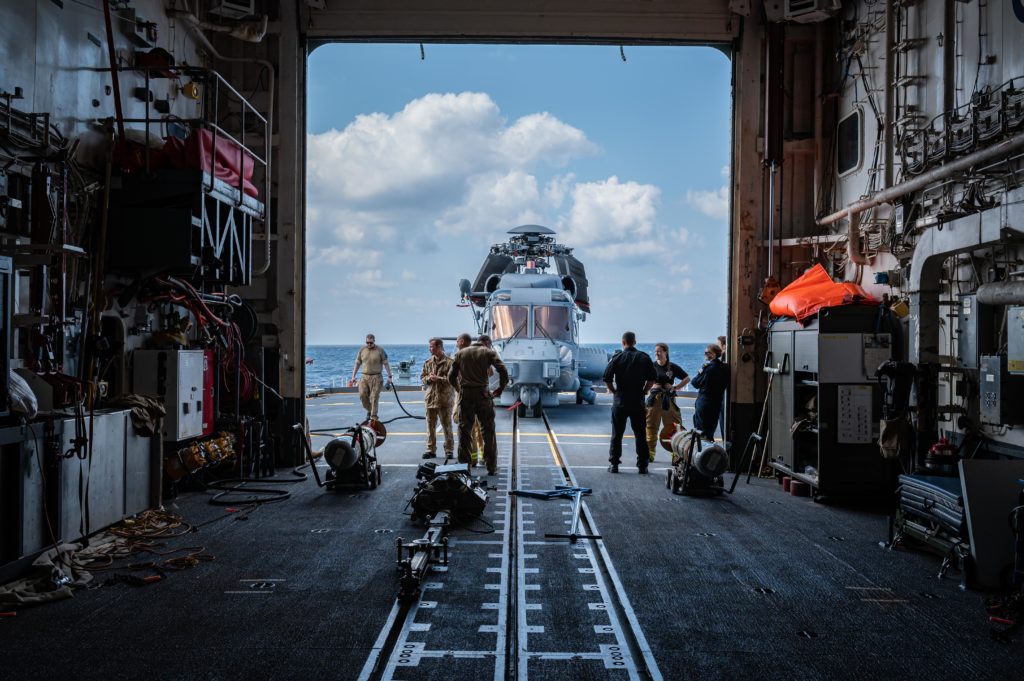
This article originally appeared in The Hub.
By J.L. Granatstein, April 28, 2022
Few Canadians think of the country’s national interests. Even our governments scarcely ever base policy on them, but interests exist nonetheless, and they are not hard to list.
- Canada must protect its territory and the security of its people.
- Canada must strive to maintain its unity.
- Canada must protect and enhance its independence.
- Canada must promote the economic growth of the nation to support the prosperity and welfare of its people.
- Canada should work with like-minded nations for the protection and enhancement of freedom and democracy.
The first of these interests is the basic duty of every nation: defend the people and territory of the state against all threats, domestic or foreign. The fifth interest states that Canada has interests abroad, interests that have led Canadians to fight wars that led to tens of thousands of deaths and injuries to its young men and women. The other national interests, while not directly linked to defence, also point to the need to bear in mind that not all Canadians have been eager to join in wars; Québécois’ support for the Great War and the need for conscription was unenthusiastic, to say the least. The fourth interest similarly suggests that relations with the United States must be carefully considered as the government works to keep the economy working well.
The federal government’s April budget makes clear that national interests were not much in mind in Ottawa even as the Russian invasion of Ukraine brought the world closer to war. Yes, Finance minister Chrystia Freeland did make a gesture toward the national interests, stating that “National defence is a fundamental responsibility of the federal government. In addition to protecting Canada from international threats and defending our sovereignty, the Canadian Armed Forces play an important role in making the world a safer place.” This statement aside, the rest of her budget did little to demonstrate any serious intent to bolster the Canadian Armed Forces.
The CAF, in fact, can do very little to make the world a safer place. The RCAF has forty-year-old fighter jets and too few transport aircraft. The RCN’s ships, once technologically equal to those of any other navy, are now obsolescent. The Army lacks modern tanks, anti-tank weapons, and defence against aircraft, and there are no drones. There are insufficient numbers in the ranks in all three services, and much of the stockpiles of protective equipment, medical supplies, artillery, and obsolete anti-tank weapons are being shipped to help the Ukrainians.
Of course, there are old government pledges, ambitious and expensive plans to build new naval vessels and up-to-date fighters, but nothing will be delivered on time and on budget because the bureaucratic procurement system is completely broken. The Trudeau government issued a paper in 2017 that promised to boost defence spending from $18.9 billion to $32.7 billion in 2026-27. Even that figure, however, would not meet NATO’s call for member states to spend 2 percent of GDP on defence—at best it might reach 1.5 percent—and given the government’s promises of dental care, pharmacare, money for housing, and meeting the demands of the Indigenous population, there is scant chance of hitting even that 2026-27 target. As it is, the defence spending figures are pumped up with veterans’ pensions and other federal department spending, all amounting to some 20 percent of the purported current $24 billion defence expenditure.
To be fair, Ms Freeland did boost defence spending above the 2017 plan by $8 billion over five years. But that is a pittance, a drop in the military bucket. Estimates by the Canadian Global Affairs Institute pointed out that $17 billion more a year would be needed to reach the 2 percent goal, something the Trudeau government seems completely unable to contemplate.
The state of Canada’s military unfortunately is not something that disturbs most Canadians. A Leger poll after the April budget found that almost half said Canada was spending enough, while 18 percent said it should spend less. Only 34 percent wanted more defence spending.
How can this be? We are watching a brutal Russian war unfold in Ukraine and seeing an aggressive China press forward in the Pacific. The possibility of a major global conflict is very real, Canada cannot avoid being involved should it occur, and Canadians somehow believe—like their government—that we need do nothing to prepare. Most likely think that Canada is a peacekeeper still, despite the fact that the Liberals have effectively removed Canada from military support to UN operations. Most apparently believe that the Americans will rescue us should we be attacked or that two oceans separate us from any conflict. Whatever the reasoning, the public supports the Liberals’ neglect of defence.
The policies and polling numbers notwithstanding, we still have national interests, and numbers 1 and 5, the defence of Canada, democracy, and freedom, still matter. But if neither the public nor the government believes in defence, we can rely only on good wishes and high hopes. Global Affairs minister Melanie Joly said recently that while Canada was not a military power, it was good at “convening.” This was twaddle, but we must hope she was correct. We could convene a meeting with the G7, the G20, and the UN to ask other nations to forget about us in any coming conflict. They won’t.
Leon Trotsky said that “You may not be interested in war, but war is interested in you.” Unfortunately, he was right.
J.L. Granatstein taught Canadian history for 30 years, was director and CEO of the Canadian War Museum, and is the author most recently of Canada’s Army: Waging War and Keeping the Peace (2021). He sits on the Macdonald-Laurier Institute’s Research Advisory Board.




